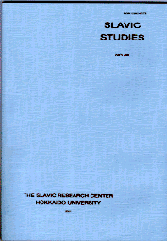



Keywords: self concept; irrational beliefs
The present study investigated the relationship between self-concept and irrational beliefs. The variables of self-concept were measured with Structural Analysis of Social Behaviour Model (SASB Intrex Introject) (L. Benjamin, 1974). To research on the irrational beliefs, this study used the Idea Inventory: revised version (Buianina T. & Armelius B-Å. 2006). The results show that a negative self- concept is associated with irrational beliefs. Data analysis suggests that irrational thoughts might mediate the self- concept’s processes thus maintaining a negative self. Hence, negative self- concepts may not only suffer for elevated negative feelings about the self but because of irrational thoughts interferences may also struggle to be able to generate self supportive images for the self, and this difficulties could be a focus of the therapeutic interventions.
More...Keywords: mediated learning; cognitive modifiability
The mediation is a concept that reffers to access modalities of a person to the data of external world by the apport of another person. Thus we have a tripartite model of learning composed by mediator the mediated object and the beneficiary of this process. In this study we refer to beneficiary as student and/or patient, in the relevant contexts for this conditions.
More...Keywords: perceived well-being; exploratory factor analysis; confirmatory factor analysis
The Perceived Wellness Survey (PWS) (Adams, Bezner and Steinhardt, 1997) was developed to measure subjective well-being from a eudemonic point of view. This paper presents the findings of a study undertaken to adapt the PWS for the Romanian population. A sample of 448 subjects, 229 males and 219 females, were used. Based on exploratory and confirmatory factor analysis a three factor model was obtained. Results show adequate construct, convergent and discriminant validity of the adapted instrument as well as acceptable internal consistency for each scale.
More...Keywords: normally; disabilities; normalization principle
Concerning people with disabilities, sometimes errors occur in defining theoretical concepts used by different approaches that address this category of people. The correct definition of these concepts determines the clear understanding of the problems that people with disabilities have to overcome and the suggested solutions. In this paper, the main focus is on the clarification of the normalization principle and the ways in which it can be implemented in everyday life.
More...Keywords: structural equation modeling; concepts; steps; fit indexes; asumptions
Structural equation modelling is a technique of multivariate analysis very general and powerful at the same time. Such techniques may be used to test theories, sometimes very complex, from empirical data. Article's looking to make an introduction to the use of structural equations modelling, are presented concepts, specific methods, the steps are discussed fit indexes, and assumptions to be followed when modelling with structural equations.
More...Keywords: psychosocial; neoplasm; survival; relapse; prognosis; statistic analysis
This article reviews literature on the psychosocial correlate of cancer relapse and survival from 1987 through 2007. Reviewed studies have shown that factors most frequently evaluated were depression, anxiety, hopelessness/hopelessness, hostility, marital status and social involvement. Mainly inconsistent results were found. The strong evidence for a relationship between psychosocial variable and prognosis was found for social support. Among the factors that showed no correlation at all was locus of control. For the inconsistent findings, a considerable number of methodologic shortcomings with respect to study design, sample size, measure and statistic analysis are enumerated.
More...Keywords: prejudice; racism; discursive practices
This article presents a review of the contribution of discursive social psychology to the study of prejudice and racism. At first I will discuss the theoretical and methodological characteristics of discursive social psychology showing that this field of social psychology has re-specified some of the traditional socio-cognitive approaches to stereotyping, prejudice and racism by shifting its emphasis on the study of the discursive practices, on the discourse which is seen as the action that construes reality. The paper ends with a presentation of what is known as “critical discursive social psychology”, which scope’s is to investigate the way in which some forms, discursive practices, institute, modify, create and reproduce patterns of social inequality and unequal relations of power which function on an ideological level. The basic idea of this approach, which has major implications for the study of prejudice and racism, is to highlight the social, political and ideological consequences of different types of discursive organizations such as naturalization and the legitimate dominance and maintenance of the status-quo.
More...Keywords: situated cognition; indexical representations; listening comprehension performance
According to the theory of situated cognition learning is affected by the context in what the learning takes place. Embedding the process of learning in the context results in that the implicit knowledge acquired from the context will increase the performance. However, real context like situations increase also later performance. This research study is based on the hypothesis of real context like activities applied to reading comprehension task for students in 4th and 5th grade. The hypothesis of this research is that the use of methods similar to situated cognition related to a reading comprehension task will increase later performance of students for free retrieval and cued-recall of a story and new words presented through the story. Students were randomly assigned to one of three groups: control, visual, and activity (in situated cognition like condition). Results show that tasks that mimic reality increase reading comprehension performance. There are discussed implications for educational practice by showing the relationship between explicit knowledge and implicit understanding as related to situated cognition.
More...Keywords: basic psychological needs; autonomy; competence; affiliation; questionnaire
The Basic Needs Perspective is a component of the Self-Determination Theory, and it takes into consideration the natural tendencies of growth to explain motivation and well-being. The simultaneous experience of autonomy, competence, and affiliation contributes to the feeling of fulfillment, determines a positive evaluation of life and ensures a positive perception on psychological and physical health, including at workplace. We used a sample of 141 students for the factorial validation of The Basic Needs Questionnaire in school environment. The exploratory factorial analysis with varimax rotation shows three factors, explaining 53,39% of the variance: the need for affiliation, the need for competence, and the need for autonomy. The stability coefficients are satisfactory, and the internal consistency coefficients are high for the first two subscales, but relatively small for the third one. Nevertheless, we believe that the instrument is efficient for the assessment of the basic psychological needs in school environment.
More...




Keywords: culture; tradition; philosophy; theandric; universal;
In this study we emphasize some traits based exclusively on the philosophical contribution of the theolog Nechifor Crainic. We will also point out what made the thinker have an attitude framed in the sense of tradition and in the autochthonal spirit, but also the reason why his work has still a national cultural value and, why not, an universal value.
More...
Keywords: modern ballad; aesthetic pattern; mediaeval; musicality; masterpiece;
A cultivated intellectual as Radu Stanca, whose ballad poetry creatively assimilated patterns of the genre masters didn’t lack the lesson of lyrical substance and musicality of Mihai Eminescu, the genius who cleared his way to classics. Thoroughly cultivating his talent, Radu Stanca created numerous poems which reach the masterpiece value of the modern ballad, which the author proposed to reform through an infusion of lyrical and drama elements within the traditional epic core of the genre. And indeed, Radu Stanca managed, as quite rarely other contemporary poets did, to illustrate the modern species of the ballad in an edifying manner.
More...

Keywords: intelligence; information; data; Lev Manovich; CIA; Ars Analitica; Internet;
One of our most relevant goal of our research is to recover the viral signifiance through three filters: socio-cultural element, data culture or tehno-informational paradigma and viral aesthetics. This article is about intelligence analysis and how data becomes information and information can seen aș data flow. An entire culture is affected by this attempt to catch a moment or a capture of flow. We talk about a true flow of data and information when everything seems to be indexed into an universal archive and we play the role of the analyst. We must to re-interpret the world in this new situation, where information was reduced to data, in a post-strusturalist manner.
More...